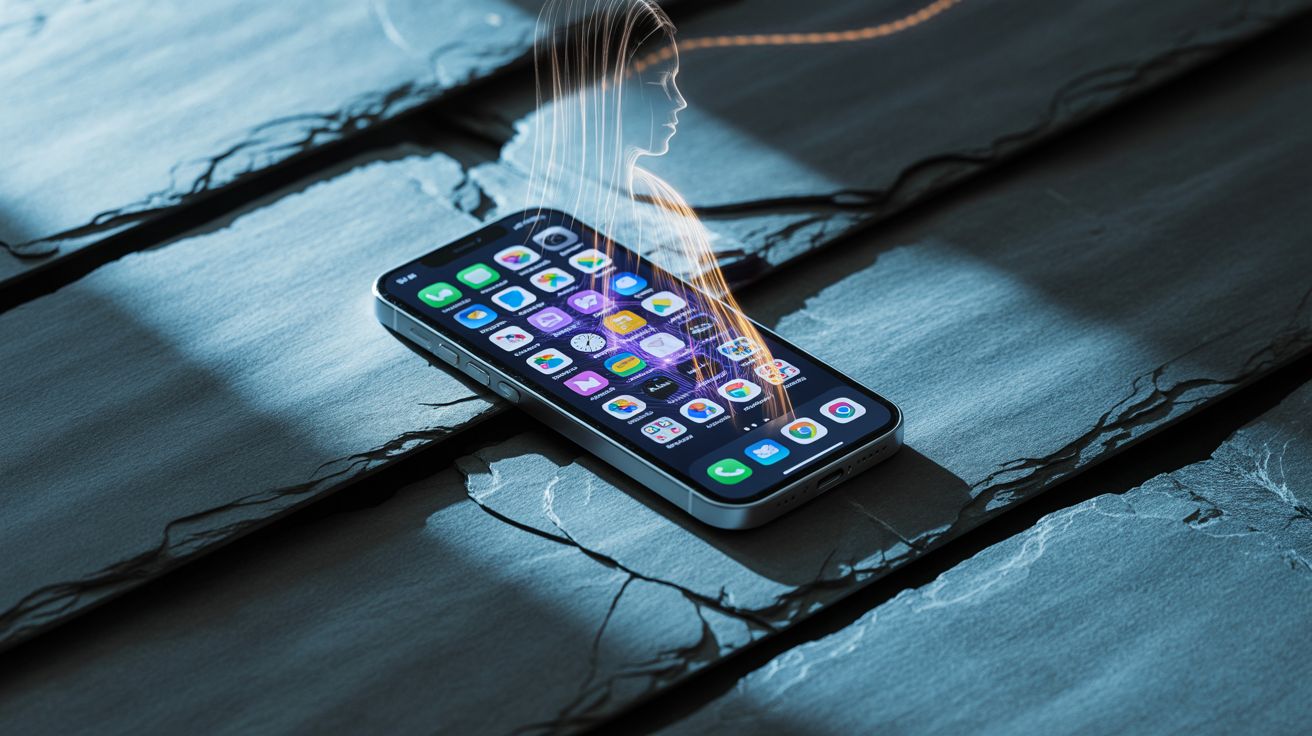Your Phone Knows More About You Than Your Best Friend—Here's How to Fight Back
The Silent Confidant in Your Pocket
Imagine this: you're scrolling through social media, idly chatting with a friend about a new restaurant you want to try. Later that day, ads for that exact restaurant, or similar cuisines, pop up on your phone. Coincidence? Maybe. But increasingly, our phones are acting as silent confidants, absorbing information we might not even consciously realize we're sharing. They know our routines, our interests, our deepest fears, and even our health concerns. This constant stream of data collection, while often presented as a way to improve our user experience, raises serious questions about privacy and control.
The truth is, your phone, that sleek piece of technology you rely on every day, likely knows more about you than your closest friend. It tracks your location, monitors your browsing history, analyzes your conversations (even when you're not actively using it), and builds a detailed profile that's incredibly valuable to advertisers, data brokers, and even governments. While some of this data collection is necessary for your phone to function properly, much of it is excessive and potentially exploitative. Let's delve into how this happens and, more importantly, what you can do to reclaim your digital privacy.
Understanding the Data Goldmine
The sheer volume of data your phone generates is staggering. Every app you download, every website you visit, every search you conduct, and every photo you take contributes to a growing digital footprint. This data is then aggregated and analyzed to create a comprehensive picture of your life. Think about the permissions you grant to apps without a second thought. Do that flashlight app really need access to your contacts? Does that game really need to know your location at all times? These seemingly innocuous requests are often gateways to a treasure trove of personal information.
Furthermore, the software running on your phone, both the operating system and the individual apps, is constantly collecting data in the background. This includes information about your device's performance, your usage patterns, and even your biometric data (if you use features like fingerprint scanning or facial recognition). This data is often anonymized, but even anonymized data can be de-anonymized with enough effort, potentially revealing your identity and exposing your personal information.
Location, Location, Location: The Tracking Game
One of the most valuable pieces of data your phone collects is your location. GPS, Wi-Fi, and cellular data are all used to pinpoint your whereabouts with remarkable accuracy. This information is used for everything from providing directions to suggesting nearby restaurants. However, it's also used to track your movements over time, creating a detailed record of where you go, how long you stay there, and who you might be with. This location data can be incredibly revealing, exposing your daily routines, your social connections, and even your political affiliations.
Many apps request access to your location, even when it's not strictly necessary for their functionality. For example, a weather app might need your location to provide accurate forecasts, but a social media app might use it to target you with location-based ads. It's crucial to carefully review the location permissions you grant to apps and to limit access to only when the app is actively in use. You can also disable location services altogether, although this will limit the functionality of some apps.
The App Ecosystem: A Privacy Minefield
The app ecosystem is a double-edged sword. On one hand, it provides access to a vast array of tools and services that can make our lives easier and more enjoyable. On the other hand, it's a breeding ground for privacy violations. Many apps are designed to collect as much data as possible, often without your explicit consent. This data is then used for targeted advertising, data brokering, and other potentially harmful purposes.
Before downloading an app, take the time to read its privacy policy and to understand what data it collects and how it uses it. Be wary of apps that request excessive permissions or that have vague or confusing privacy policies. Consider using privacy-focused app stores or alternative app platforms that prioritize user privacy. Regularly review the apps installed on your phone and uninstall any that you no longer use or that you suspect of violating your privacy.
Cybersecurity and Your Phone: A Vulnerable Fortress
Your phone is not only a data collection device but also a potential target for cybersecurity threats. Hackers can exploit vulnerabilities in your phone's software to gain access to your personal information, install malware, or even remotely control your device. Phishing scams, malicious apps, and unsecured Wi-Fi networks are just some of the ways that hackers can compromise your phone's security.
To protect your phone from cybersecurity threats, it's essential to keep your software up to date, use a strong password or biometric authentication, and be cautious about clicking on suspicious links or downloading apps from untrusted sources. Consider installing a mobile security app that can scan for malware and protect against phishing attacks. Regularly back up your phone's data to a secure location in case of a security breach or device failure.
Taking Control: Privacy Settings and Beyond
Fortunately, you're not entirely powerless in the face of this data collection onslaught. Both Android and iOS offer a range of privacy settings that allow you to control what data your phone collects and how it's used. These settings allow you to limit location tracking, restrict app permissions, and disable personalized advertising. Take the time to explore these settings and to customize them to your preferences.
Beyond the built-in privacy settings, there are also a number of third-party tools and apps that can help you protect your privacy. These include VPNs (Virtual Private Networks) that encrypt your internet traffic, privacy-focused browsers that block trackers, and ad blockers that prevent targeted advertising. Experiment with different tools and find the ones that work best for you.
The Power of Digital Minimalism
One of the most effective ways to protect your digital privacy is to practice digital minimalism. This involves consciously reducing your reliance on technology and being more mindful of how you use your phone. Delete apps you don't use, unsubscribe from unnecessary email lists, and limit your time on social media. The less data you generate, the less vulnerable you are to privacy violations.
Consider using alternative, privacy-respecting services whenever possible. For example, instead of using Google Search, try DuckDuckGo, a search engine that doesn't track your searches. Instead of using Gmail, try ProtonMail, an encrypted email service. By making conscious choices about the services you use, you can significantly reduce your digital footprint and protect your privacy.
A Call to Action: Reclaim Your Digital Life
The battle for digital privacy is an ongoing one, but it's a battle worth fighting. Your phone may know a lot about you, but it doesn't have to know everything. By understanding how your data is collected and used, and by taking proactive steps to protect your privacy, you can reclaim control of your digital life. It's not about becoming a Luddite or abandoning technology altogether. It's about being informed, being mindful, and making conscious choices about how you interact with the digital world.
Start today. Review your app permissions, adjust your privacy settings, and explore privacy-focused tools. Talk to your friends and family about digital privacy and encourage them to take action as well. The more people who demand privacy, the more likely companies are to respond. Let's work together to create a digital world where privacy is respected and protected, not just an afterthought. The future of digital privacy depends on it.



